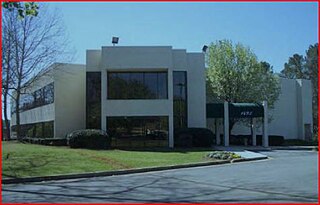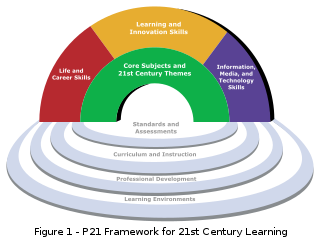
Experiential education is a philosophy of education that describes the process that occurs between a teacher and student that infuses direct experience with the learning environment and content. This concept is distinct from experiential learning, however experiential learning is a subfield and operates under the methodologies associated with experiential education. The Association for Experiential Education regards experiential education as "a philosophy that informs many methodologies in which educators purposefully engage with learners in direct experience and focused reflection in order to increase knowledge, develop skills, clarify values, and develop people's capacity to contribute to their communities". Experiential education is the term for the philosophy and educational progressivism is the movement which it informed. The Journal of Experiential Education publishes peer-reviewed empirical and theoretical academic research within the field.

In education, a curriculum is broadly defined as the totality of student experiences that occur in the educational process. The term often refers specifically to a planned sequence of instruction, or to a view of the student's experiences in terms of the educator's or school's instructional goals. A curriculum may incorporate the planned interaction of pupils with instructional content, materials, resources, and processes for evaluating the attainment of educational objectives. Curricula are split into several categories: the explicit, the implicit, the excluded, and the extracurricular.

The Marine Academy of Science and Technology (MAST) is a coeducational four-year magnet public high school located in the Sandy Hook section of Middletown Township, in Monmouth County, in the U.S. state of New Jersey, serving students in ninth through twelfth grade. The school offers learning in all subjects, specializing in marine science and technology. It is one of five career academies administered by the Monmouth County Vocational School District (MCVSD). MAST requires each student to participate in the Naval Junior Reserve Officers' Training Corps (NJROTC) every year as well as an Annual Military Inspection (AMI) in the spring or fall. The school's curriculum focuses on marine sciences and marine technology/engineering. The school offers small classes with close personal attention.
The Academia Británica Cuscatleca (ABC) is an established and highly regarded international bilingual school in El Salvador. It is a community of some 1400 students and is fully accredited by Council of International Schools (CIS), the International Baccalaureate Organisation (IBO), the International Primary Curriculum (IPC) and the Values-Based Trust for Education (VBFT).
Understandings of culturally relevant teaching has developed over time. Key characteristics and principles help define it, and research has allowed for the development and sharing of guidelines and associated teaching practices. Although examples of culturally relevant teaching programs exist, implementing it can be challenging.

George Campbell School of Technology is a public high school specialising in technical education, located in Durban, KwaZulu-Natal, South Africa. The school was founded as George Campbell Technical High School in 1963 and today has a co-educational student body of over 1100 pupils. The curriculum includes the compulsory subjects of Mathematics, Physical Science & Chemistry, Engineering Graphics and Design, English and Afrikaans or IsiZulu.
Korowa Anglican Girls' School is a private, Anglican, day school for girls, located in Glen Iris, a suburb of Melbourne, Victoria, Australia.

Melbourne Girls' College is a semi-selective government-funded girls’ school located in Richmond, an inner-city suburb of Melbourne. The school has one campus on the banks of the Yarra River which caters for the secondary education of girls from years 7 to 12, and has an enrolment of 1406, with a division between the middle and senior school. Currently, girls from 212 Melbourne postcodes, in Melbourne and country Victoria, along with girls from overseas countries, make up the student population. Sixty countries of birth are represented at the school.

DeKalb Academy of Technology and Environment (DATE) is a charter school located at 1492 Kelton Drive in Stone Mountain, Georgia, United States. The school has about 759 students in kindergarten through eighth grades.
Elwood Union Free School District is a public school district in New York, United States. It serves residents in the hamlet of Elwood. The district is continuously recognized for its dedication to academic excellence, innovative educational practices, and robust community involvement.

Opelika City Schools (OCS) is a school district headquartered in Opelika, Alabama. The district is accredited by the Alabama State Department of Education and the Southern Association of Colleges and Schools. The school system enrolls approximately 4,300 students on nine campuses. Opelika has three primary schools with grades K–2, Southview, Jeter, and Carver, three intermediate schools with grades 3–5, West Forest, Northside, and Morris Avenue, Opelika Middle School with grades 6–8, Opelika High School with grades 9–12, and one at-risk school, Opelika Learning Center. Opelika's schools have traditionally had strong programs in technology and the arts.
Knox College is a co-educational high school for both day pupils and boarders in Clarendon Parish, Jamaica. The other institutions that form the complex are: the Neighbourhood Early Childhood Institute, Knox Junior School, and Knox Community College. It was co-founded by Rev. Dr. Lewis Davidson and Mr. David Bent in 1947 and is named after John Knox.

Uruguayan American School (UAS) is an American private international school in Carrasco, Montevideo. It serves nursery through grade 12. As of 2024 it has approximately 350 students, including students from Uruguay and 32 other nationalities. Students at the Uruguayan American School have the opportunity to earn the US high school diploma, the IB Diploma, and, in many cases, the Uruguayan Diploma. The school's educational program is designed to prepare students for academic and professional pursuits in various global contexts.
Internationals Network for Public Schools is an educational nonprofit supporting International high schools and academies, serving newly arrived immigrants who are English language learners (ELLs), in New York, California, Kentucky, Maryland, Virginia, and Washington, DC. Internationals Network also partners with other schools and districts across the country.

St James Lutheran College is an independent, co-educational Kindergarten to Year 12 Lutheran College under the Lutheran Church of Australia. The school is located in Urraween, a suburb of Hervey Bay, South East Queensland, Australia. St James Lutheran College currently caters for approximately 800 students, after opening in 2003 as one of the newest Christian schools on the Fraser Coast.

In the United States, elementary schools are the main point of delivery of primary education, for children between the ages of 4–11 and coming between pre-kindergarten and secondary education.

21st century skills comprise skills, abilities, and learning dispositions identified as requirements for success in 21st century society and workplaces by educators, business leaders, academics, and governmental agencies. This is part of an international movement focusing on the skills required for students to prepare for workplace success in a rapidly changing, digital society. Many of these skills are associated with deeper learning, which is based on mastering skills such as analytic reasoning, complex problem solving, and teamwork, which differ from traditional academic skills as these are not content knowledge-based.

The term learning environment can refer to an educational approach, cultural context, or physical setting in which teaching and learning occur. The term is commonly used as a more definitive alternative to "classroom", but it typically refers to the context of educational philosophy or knowledge experienced by the student and may also encompass a variety of learning cultures—its presiding ethos and characteristics, how individuals interact, governing structures, and philosophy. In a societal sense, learning environment may refer to the culture of the population it serves and of their location. Learning environments are highly diverse in use, learning styles, organization, and educational institution. The culture and context of a place or organization includes such factors as a way of thinking, behaving, or working, also known as organizational culture. For a learning environment such as an educational institution, it also includes such factors as operational characteristics of the instructors, instructional group, or institution; the philosophy or knowledge experienced by the student and may also encompass a variety of learning cultures—its presiding ethos and characteristics, how individuals interact, governing structures, and philosophy in learning styles and pedagogies used; and the societal culture of where the learning is occurring. Although physical environments do not determine educational activities, there is evidence of a relationship between school settings and the activities that take place there.
Indus Trust is a non profit educational trust that focuses on training research and allied activities for underprivileged communities in India.

Educational management refers to the administration of the education system in which a group combines human and material resources to supervise, plan, strategise, and implement structures to execute an education system. Education is the equipping of knowledge, skills, values, beliefs, habits, and attitudes with learning experiences. The education system is an ecosystem of professionals in educational institutions, such as government ministries, unions, statutory boards, agencies, and schools. The education system consists of political heads, principals, teaching staff, non-teaching staff, administrative personnel and other educational professionals working together to enrich and enhance. At all levels of the educational ecosystem, management is required; management involves the planning, organising, implementation, review, evaluation, and integration of an institution. Research in educational management should explore the dynamic interplay among educational leaders, their followers, and the broader community to enhance the quality of teaching and learning outcomes.













